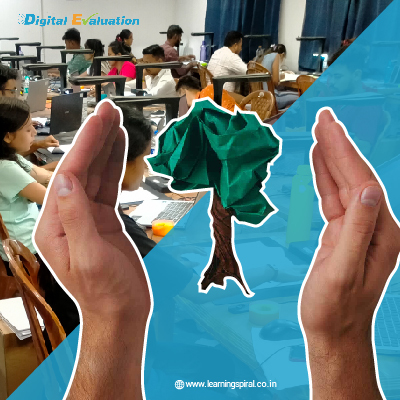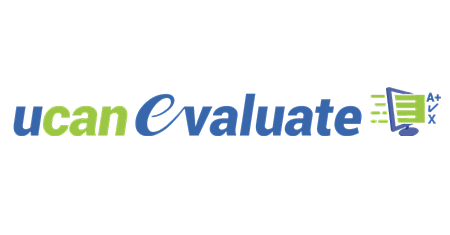As educational institutions around the world pursue more sustainable practices, the use of digital technologies has become increasingly important. One important improvement is the scanning of answer sheets, which has significant environmental advantages. Learning Spiral is driving this green change with its novel Digital Evaluation solutions, which offer a new approach to assessment that is consistent with environmental sustainability goals.
Reduced Paper Usage
Traditional paper-based evaluations use a large amount of paper, contributing to deforestation and enormous waste. By scanning of answer sheets, Learning Spiral’s Digital Evaluation system significantly lowers the requirement for paper. This reduction not only saves trees but also reduces the energy and water utilized in paper manufacture, resulting in a lower environmental footprint.
Lower Carbon Emissions
The environmental impact of physical answer sheet handling goes beyond paper use. The process of printing, shipping, and storing paper assessments produces significant carbon emissions. Learning Spiral’s digital approach eliminates these processes, resulting in reduced greenhouse gas emissions. Transitioning to scanned answer sheets allows educational institutions to dramatically cut their carbon footprint, contributing to worldwide efforts to address climate change.

Waste Minimization
Paper waste is a big environmental concern, and discarded answer sheets add to landfill accumulation. Scanning of answer sheets with Learning Spiral’s Digital Evaluation solution saves assessments online, reducing the need for physical disposal. This not only minimizes the amount of waste sent to landfills, but it also saves energy and resources used in waste management.
Energy Efficiency
While digital systems use energy, the overall energy expenditure is frequently lower than with traditional paper-based approaches. The Learning Spiral’s Digital Evaluation is meant to be energy efficient, leveraging innovative technologies that optimize power utilization. Furthermore, eliminating the physical distribution and storage of paper assessments saves energy and makes the digital system more environmentally friendly.
Sustainable Resource Management
The transition to digital evaluation methodologies promotes sustainable resource management. Learning Spiral’s Digital Evaluation enables the efficient use of digital resources, lowering the need for raw materials used in paper manufacture. This move not only conserves natural resources, but also promotes the development and application of renewable resources in educational technology.
Promoting a Green Culture in Education
Aside from the obvious environmental benefits, the use of answer sheet scanning encourages a culture of sustainability among educational institutions. Schools and universities can set an example for ecologically aware practices by implementing Learning Spiral’s Digital Evaluation. This cultural shift has the potential to motivate students and staff to adopt more sustainable behaviors in other aspects of their lives, thereby increasing environmental knowledge and responsibility.
Conclusion
The environmental impact of scanning of answer sheets is significant, providing a more sustainable alternative to traditional paper-based exams. Learning Spiral’s Digital Evaluation is at the forefront of this green revolution, giving educational institutions the tools they need to cut paper usage, lower carbon emissions, minimize waste, and manage resources sustainably. As more schools and institutions implement these digital solutions, the cumulative environmental advantages will be enormous, contributing to a more sustainable future for education and the planet.

